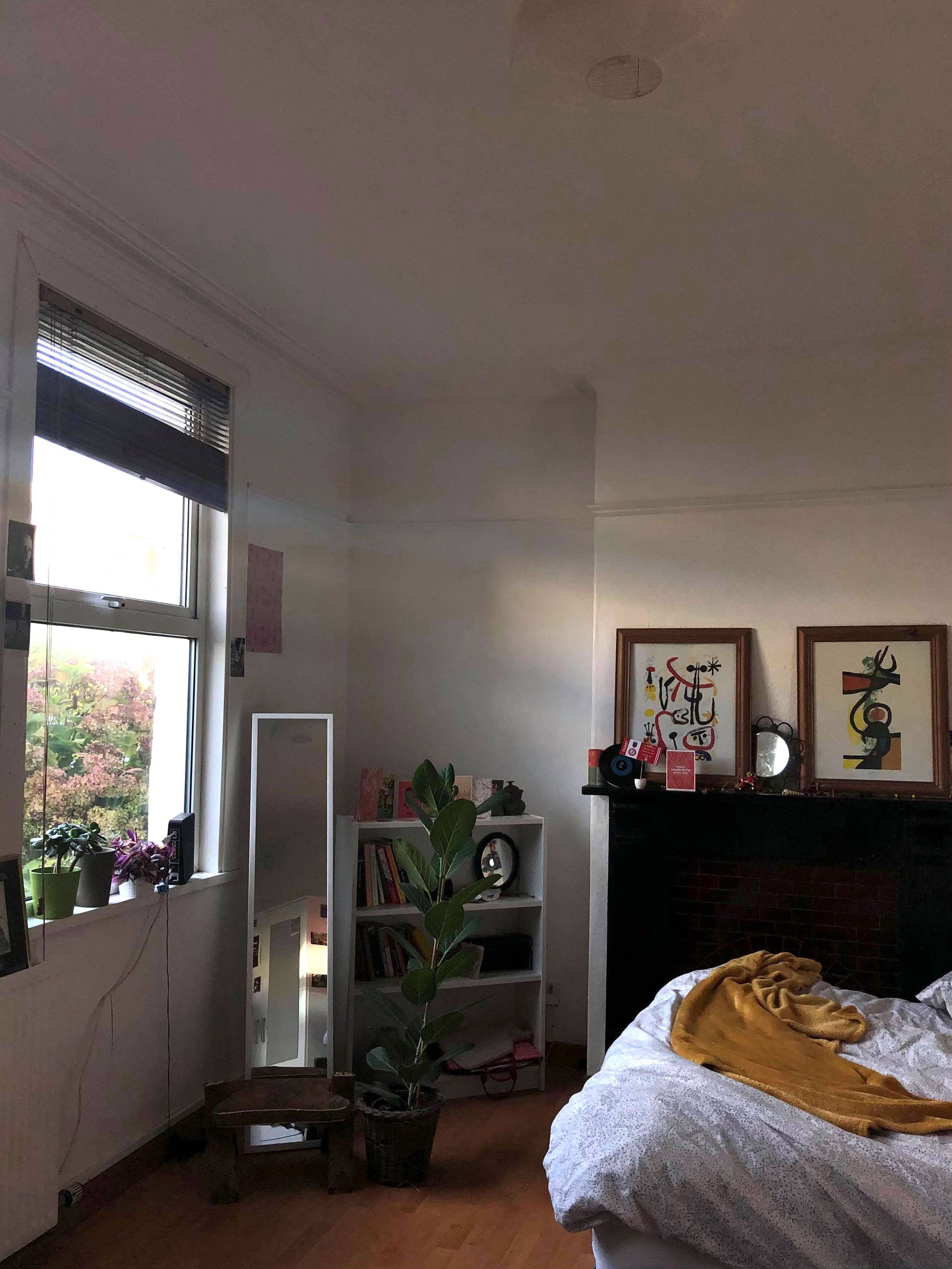by Lily Sheridan-Power, Third Year, Anthropology
The Croft // Lily Sheridan-Power explores the relationship between our physical environment and our mental wellbeing and offers her advice on getting started with the ‘big clean’.
The vigilant barista asks if I would like to order another coffee. After politely declining her offer, I peer around me. The once-bustling café has been converted into a graveyard. Each dolorous student has abandoned their coffee-stained table. Much to the barista’s pleasure, I take my cue to leave.
Despite the £3.90 price tag for a chai latte, I have always preferred working in coffee shops than in libraries. The background noise helps me to study. I also take great pleasure in watching elderly couples bicker over Americanos.
On the walk home, it suddenly dawns on me: my bedroom is a complete tip. After frantically cramming for a deadline, the last thing I want to do is come home to a messy bedroom and house. Unfortunately, this is often the case when living in student accommodation.

It seems like a daunting task, especially when feeling tired and stressed; however - I remind myself - I will feel lighter afterwards. As with other menial chores, starting is the hardest part. Once you get going, it’s a breeze.
To psych myself up for the big clean, I start by drafting a mental to-do list, putting on my trashy 2000s playlist (that’s normally reserved for nights in with my housemates) and grabbing the cleaning supplies from the kitchen. To the tune of ‘Can’t Get You Out of My Head’, I start to sieve through the clothes scattered across the floor. This is usually my biggest obstacle. After the clothes have been safely returned to my wardrobe, I reward myself with a 5-minute phone break.
When your brain’s visual cortex is overwhelmed by irrelevant objects, it becomes harder to focus on your immediate task
Following on: I empty the bin, locate and remove all the glasses and mugs, vacuum the floor, clean my mirror and make my bed. By the end of the 20-minute clean, my head is cleared.
Due to government guidelines, we have spent more time stuck indoors this year than ever before. Studies have proven that it is important for our mental health to keep our homes decluttered and organised. Therefore, now is an ideal time to adopt a regular cleaning schedule.

Research has revealed that working in a messy environment can cause loss of concentration. When your brain’s visual cortex is overwhelmed by irrelevant objects, it becomes harder to focus on your immediate task. Getting rid of mess helps us to work and think more efficiently, which subsequently benefits other areas of our lives.
Alternative wellbeing series: A greener way to fight stress
Staying on campus over Christmas: Student stories and keeping busy
A second lockdown means being stuck in our homes around the clock, which is a lot to handle, and a messy environment will not help. When your house is clean and ordered, you will feel less stressed and less distracted.
Throughout the second nationwide lockdown, whether you’re quarantining with flatmates, locked down in halls or isolating with your parents – do not underestimate the importance of a clean space.
Featured image: Epigram / Lily Sheridan-Power









